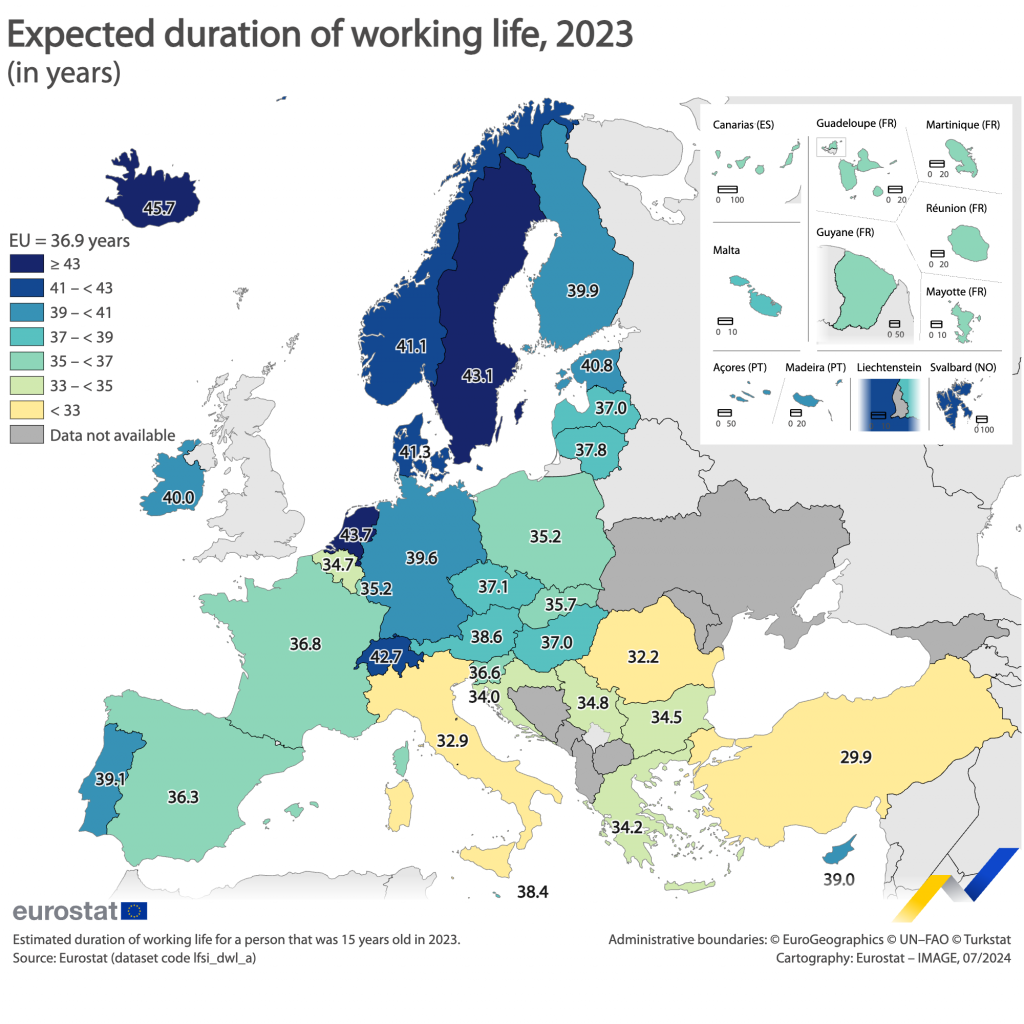According to a recent Eurostat report the expected duration of working life in Greece stands at 34.2 years, considerably lower than the EU average of 36.9 years. This places Greece among the countries with the shortest working life spans, alongside Romania (32.2 years), Italy (32.9 years), and Bulgaria (34.5 years).
In comparison, according to study, countries in Northern Europe report the longest working life spans, with the Netherlands leading at 43.7 years, followed by Sweden (43.1 years), Denmark (41.3 years), and Estonia (40.8 years). These nations also show a narrower gender gap, reflecting higher female participation in the labor market.
Greek men are expected to work for 37.7 years, while Greek women are projected to have a working life of 30.8 years, resulting in a gender gap of 6.9 years. This gap is one of the widest in the EU, with only Italy (8.9 years) and Romania (7.1 years) exhibiting larger discrepancies. The EU average gender gap is significantly narrower at 4.3 years.
Interestingly, women’s expected working life in Greece is among the shortest in the EU, surpassed only by Italy (28.3 years) and Romania (28.5 years). This contrasts sharply with Sweden, where women are expected to work for 41.9 years.
The report indicates a steady increase in the expected duration of working life across the EU since 2013, rising from 34.7 years to 36.9 years in 2023. This trend is mirrored in Greece, although the country still lags behind the EU average.




